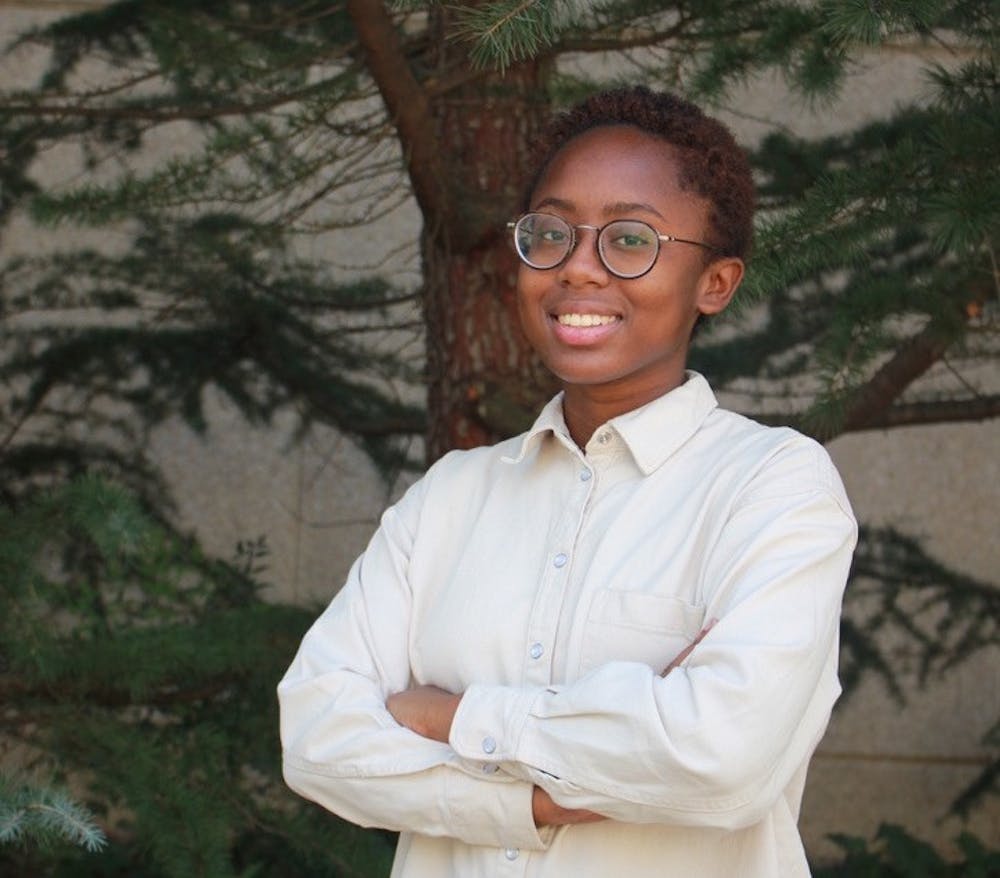It’s Black History Month and, ironically, I feel my Black history has been erased by American University, a predominantly white institution.
The University has facilitated efforts to remedy racial issues, such as in the creation of the Martin Luther King Jr. Day of Service hosted by the Center for Community Engagement and development of initiatives to diversify Counseling Center staff. Students had even come together to memorialize a victim of police brutality. However, they’ve left one item off of their “diversity points” checklist: Stop tarnishing the spaces created for Black students to take refuge in.
If you’re a current student or a recent AU graduate, you have likely heard of The Bridge Cafe. It is a hotspot for many students for coffee, studying and events, all while the background music is playing to create a cozy atmosphere. What many students are unaware of, however, is the original goal behind The Bridge’s creation. The Bridge opened on April 3, 2017 and before the pandemic hit in 2020, it held open mics, slam poetry, jazz concerts and more. Its formation was inspired by Busboys & Poets, a space in D.C. that serves as a restaurant and cultural hub for artists, activists, writers and thinkers who are people of color. The Bridge was officially deemed a sanctuary space for people of color by student demonstrators in response to the hate crimes that targeted Taylor Dumpson, Student Government’s first Black female president, which included bananas hanging on nooses around campus. They held monthly events, like Fresh Friday, that had performers who were Black and people of color, like Black Boy Fly Collective, perform hip-hop/rap and performances around race, self-discovery and queer identity.
The Bridge was once a spot for culture and soul. Now? Most of that spark is lost, as the space, music and the events held are white-centered, with the occasional SZA or Willow Smith song if they feel like being diverse. Absurdly, the space is run and operated by students in Greek life, which historically fosters an environment of racism and sexual assault.
A second space that the AU community failed to maintain was The Hub for Organizing, Multiculturalism and Equity, also known as HOME. The multicultural student space was open to every student to socialize and strategize on how to restore community at American University. The space was located on the third floor of MGC in room 331A, where students had to apply through an online form to gain AU ID access to the room. Dumpson pushed this initiative in light of the hate crimes on campus that targeted her and fellow Black women. Knowing that the University has a history of not continuing to sustain transformative projects that students create after their graduation, it isn’t surprising that students who attended AU after 2018 aren’t aware of this resource that fails to be preserved.
The only physical space Black students have to support each other is Roper Hall. Though residents within Roper had led many robust community activities and events, it’s coincidentally isolated from the rest of the residential halls behind campus, lacks accessibility and receives little to no promotion about its existence. One can point to AU’s Inclusive Excellence plan as a rebuttal, which addressed the need to highlight the difference in campus experiences between people of color and their white counterparts. To that, most bluntly, I don’t care.
I don’t care because every action by the University that concerns our campus is money-driven and to maintain its image. I don’t care because it intentionally ignores student concerns and petitions and addresses them once it’s too late to change their policy. I don’t care because I still receive anonymous death threats due to a previous article I’ve written for The Eagle, where the Title IX office had primarily granted me the option of contacting AUPD.
If the AU administration and community had an interest in cultural preservation, I could’ve taken advantage of spaces like The Bridge and HOME to aid the trauma inflicted upon me. Who am I to expect allyship when my white peers can’t respect the TDR workers who feed them?
Spaces cultivated by Black communities have recently been under attack through Title VI allegations fueled by white fragility and bomb threats directed at 14 historically Black universities. When the world has been seeing us as a population to exterminate, the AU community does nothing but contribute to that felt pain. No amount of diversity numbers, nor “BLM” Instagram bios, can ever remedy the breached trust between the Black community and the AU community.
It is up to my white counterparts to fuel current multiculturalism efforts and keep themselves educated on the safe spaces that we’ve lost and strategize on how to reinstate them. It is up to them to form connections with affinity groups that aren't based on self-interest or tokenization, but rather to advance common goals. Don’t just celebrate my history, put in the effort to restore it.
Kayla Kelly is a junior in the School of Public Affairs and the opinion managing editor for The Eagle.





